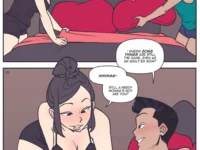Ay papa comics


















1968 Philippines PIONEER KOMIKS MAGASIN Liberty Ilagan # 135 Comics | Collectibles, Comic Books & Memorabilia, Comics | eBay!
Africa has a long history of comic production that span multiple forms and formats, from popular photocomics such as African Film, produced by Drum in Nigeria, Kenya and Ghana in the early 60s; Joe published in Kenya in the 1970s; Nigeria’s Ikbe Super, the monthly tabloid that ruled its readership throughout West Africa in 1980s; the Ivory Coast’s satirical newspaper Gbich!, founded in 1998 and one-man guerrilla publishing empires such as Kinshasa’s Mfumu’Eto and Zebulon Dread’s Hei Voetsek in Cape Town that flourished in the 1990s. And more, more. Everyday.
As a popular form of expression, often associated with the majority poor, the non-ruling masses living in Africa’s urban centres, and largely disseminated in via the daily press as well as in stand-alone editions, comics have largely escaped the moral and political censure of both the state and religion. In a context where there are few spaces of resistance available outside of domination (unofficial or otherwise), comics allow for ambiguous moments of duplicity and even creative, embodied resistance at the level of everyday praxis.
The Lower Frequencies also lays bare the way comics use sex to challenge and uphold the borders between class and other identities and also between classes by giving expression to life in the vivid imagination of the majority poor living in African cities where the media are alive and are always very public and very loud. As critic Akin Adesokan suggests in an article on Nigeria’s Ikebe Super:
As a medium that uses both images and text, pictures and words, comics have always transgressed languages barriers and moved across borders. At the same time, because text is an integral part of the artwork comics often resist translation. The Lower Frequencies will thus feature works in multiple languages, with translations presented as footnotes.
Cuba: My Revolution. Inverna Lockpez and Dean Haspiel w/Jose Villarrubia and Pat Brosseau. 2010. This book is for mature readers – sexual images, language, and violence. This harrowing account by Lockpez, paired with stunningly haunting illustrations by Haspiel, have me understanding a complex Cuban Revolution on an emotional and personal level. Even the coloring by Villarrubia is impactful – as the color red becomes an integral character in the story. Combined with the lettering by Brosseau and we see a powerful book that takes full advantage of the comics medium. We need to understand the micro stories of history and not just the big picture with larger than life leaders. We need to know that events, large and small, are complicated and not guaranteed to turn out in an particular way. I thank Lockpez for sharing her experiences in what can only be described as honest and brave – for giving me a window into events I have never contemplated before. The warnings of ideology and blind beliefs are strong reminders to us all to not idol worship, but to take into account many different facets of leaders and the unfurling of complex events. My soul was impacted as I read this book, often having to pause and reflect, to feel and wonder. This is a powerful story.
The main hero of this story is La Borinquena – who happens to be an Afro-Latino woman powered by, and concerned with the environment. DC was awesome enough to give permission for the author to also use many of their heroes in this story – Wonder Woman, Superman, Flash, and others. This alone is enough to have students want to grab the book and read it when displayed in a classroom library. The artwork is absolutely stunning and worthy of being made into inspirational posters. This anthology has a line-up of incredible authors from the comics industry – Gail Simone, Frank Miller, to just name two. There are also many Latinx celebrities as well – Rosario Dawson and Ruben Blades being two examples. All proceeds from the sale of this book go to help those in Puerto Rico.
LatinX Superheroes – Frederick Luis Aldama. 2017. Wow! An entire course in comics culture that will inspire you to buy many books that may not already be in your collection. Wonderfully annotated and full of so much meaningful comics history. Highly recommend this prose book with many colorful images throughout.
This is a prose book of collected essays focusing on Latino artists and writers. The essays are diverse in content and also discuss the impact of Latino culture on mainstream comics/pop culture in the USA as well.
Finally we get to last week’s comics. This past one wasn’t nearly so busy a week for mathematically-themed comic strips. But there’s still just enough that I can split them across two days. This fits my schedule well, too.
Each week Comic Strip Master Command sends out some comics that mention mathematics, but that aren’t substantial enough to write miniature essays about. This past week, too. Here are the comics that just mention mathematics. You may like them; there’s just not more to explain is all.





























